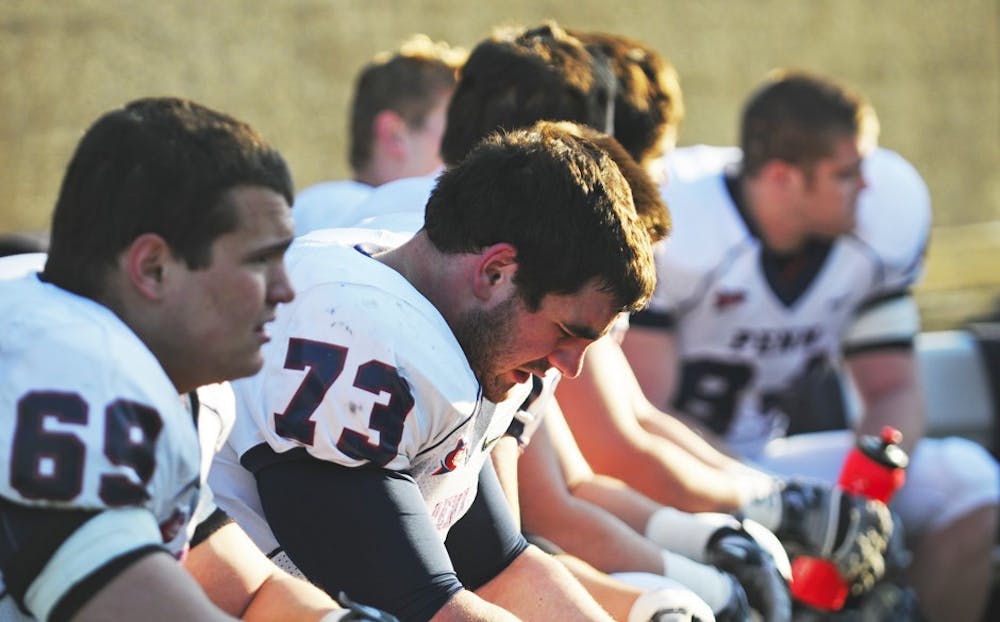After capturing two consecutive Ivy League titles, expectations for the 2011 Quakers were sky high.
Back-to-back losses to open the season, including a particularly ugly opener against a mediocre Lafayette team, rang alarm bells.
Yet the Quakers began the Ivy season with a noticeable swagger — one not unwarranted but also not sustainable.
As coach Al Bagnoli pointed out at several junctions, this Penn team was very different from the 2010 iteration. Thirty-three seniors were lost to graduation, including studs like Bradford Blackmon, Joe D’Orazio, Andrew Samson and Josh Powers.
Stars aside, the loss of so much experience in just one year is a difficult hurdle for any program to overcome, even a program with a foundation as solid as Penn’s. The Red and Blue went from a team with a tremendous amount of depth to one with relatively little, especially on defense.
The vaunted Penn defense, led by the hard-charging Erik Rask, was still solid, but no longer dominant. The latter was a weakness the Quakers did not possess during the championship years. In the Ivy League’s “Year of the Quarterback,” that vulnerability was exploited.
At Brown, the Bears’ Kyle Newhall-Caballero overcame the poor field conditions and calmly made the throws that twice moved Brown into field-goal range for a 6-0 win.
Though Collier Winters threw for only 132 yards in Penn’s showdown at Harvard, the Crimson ran roughshod over the Quakers for 37 unanswered points.
And on senior day at Franklin Field, Cornell’s Jeff Mathews set a record for quarterback dominance in the Ivy League, hanging 548 yards on the undermanned defensive unit.
Offensively, the Red and Blue were plagued by inconsistency. Junior quarterback Billy Ragone’s performance could equally be described as spectacular and frustrating. After an All-Ivy season in his first year as a starter, the secret about Ragone was out.
Defenses adjusted to limit the effect of his mobility on the outcome of the game. Forced into more of a drop-back passer role, Ragone struggled at times. He flashed the ability to be ‘the guy’ that can make all the throws and carry the burden that comes with being a star quarterback. He just didn’t show it game in and game out.
The core of Penn’s offense, the running game, took a hit with the loss of Lyle Marsh early in the season and like the defense, it wasn’t the force it was previously. Last season, Penn was decidedly a run-first team.
In too many contests this year, the Quakers never established the run game, putting strain on Ragone to throw the ball downfield, something he rarely had to do in 2010.
As the twin pillars of Penn football — defense and rushing — deteriorated, so did the team’s chances for a title. The team and coaching staff deserve credit for how competitive the season was despite the huge loss in personnel.
“As time passes, I think we’ll look at the big picture,” Bagnoli reflected after the Cornell loss. “I don’t think we were as consistent as we need to be from top to bottom. I give our seniors a tremendous amount of credit. They’ve had a tremendous run; they’ve had to overcome a million things and for the most part they’ve been able to withstand it. Kudos to our kids and we’ll try to get the program back on track.”



